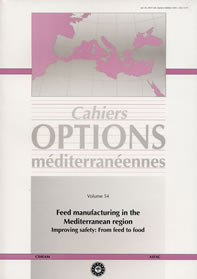| Article précédent | p. 45-53 | Article suivant |
Yeast as an example of the mode of action of probiotics in monogastric and ruminant species
The modes of action of yeast in ruminant and non ruminant species are reviewed, as an example of the mechanisms of action of probiotics in animals. Yeast induces positive effects in terms of productive performances in various ruminant and monogastric species, but cannot colonize the digestive tract. The mode of action in ruminants involves modification of rumen fermentation, related to increased bacterial numbers. Yeast effect in ruminants is strongly dependent on the diet. In monogastric species the main effects of yeast supplementation are stimulation of brush border disaccharidases, anti-adhesive effect against pathogens, stimulation of non specific immunity, toxin action inhibition and antagonistic effect against pathogenic micro-organisms.
- [ Afficher ]
- [ Télécharger ]
- [ Exporter la citation ]
Vous pouvez télécharger la citation au format :
- [ Imprimer ]
-
Mots-clés
ANIMAL MONOGASTRIQUE, APPAREIL DIGESTIF, LEVURE, PROBIOTIQUE, RUMINANTCiter cet article
Auclair E. Yeast as an example of the mode of action of probiotics in monogastric and ruminant species. In : Brufau J. (ed.). Feed manufacturing in the Mediterranean region. Improving safety: From feed to food. Zaragoza : CIHEAM, 2001. p. 45-53. (Cahiers Options Méditerranéennes; n. 54). 3. Conference of Feed Manufacturers of the Mediterranean, 2000/03/22-24, Reus (Spain). http://om.ciheam.org/om/pdf/c54/01600010.pdf



